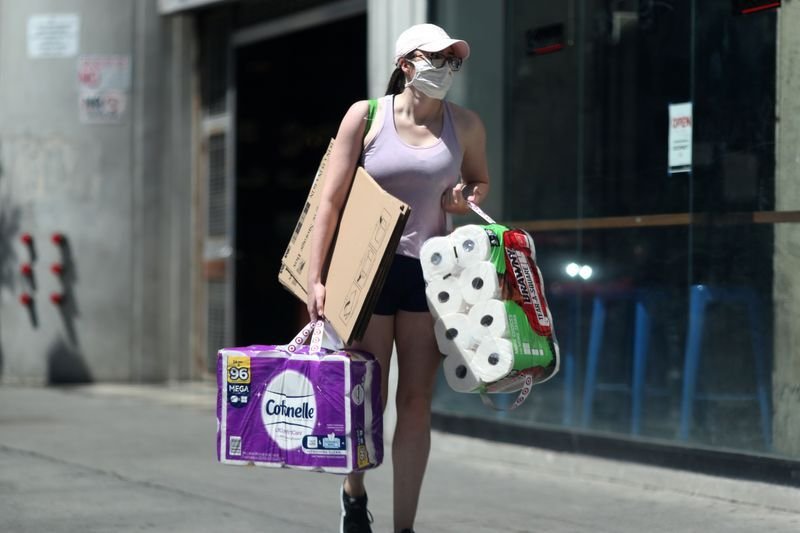Lockdown 2.0: Food Companies Overhauled Production to Put More Toilet Paper, Pasta Sauce in Stores
When rumors first began to circulate that the UK would go back into lockdown, Leanne Barnes despaired as bread and toilet roll flew off the shelves again at her local supermarket. But to her surprise, shelves were back to being fully stocked within a few days.
Barnes stocked her pantry last time around with a few additional comfort foods - macaroni cheese, ravioli, soup and spaghetti. But as of last week, she said she felt no urge to stockpile goods.
So far, consumers haven’t returned to the sort of panic buying frenzy that sent packaged-food manufacturers scrambling earlier this year.
At the same time, major food companies – including Campbell Soup CPB.N, Kraft Heinz KHC.O and McCormick & Co MKC.N – told Reuters or have said publicly that they have taken measures like changing their production, packaging or pricing so retailers can keep shelves stocked.
Their steps include expanding manufacturing, hiring more workers, re-routing products from restaurants to grocery stores, and turning to bigger pack sizes. Many of their moves came at a high financial cost.
Economists say shoppers realize they can’t afford to overspend, and therefore, aren’t likely to make binge purchases.
Consumers are more likely to hold back from stockpiling goods - even with significant price-promotions on offer – because the economy is weak and they want to conserve financial resources, according to Benny Mantin, director of the Luxembourg Centre of Logistics and Supply Chain Management.
A Reuters analysis of a basket of goods shows shoppers are buying far less in the United States and Europe than they did earlier this year at the start of the first round of lockdowns.
(Click here for graphics on consumer spending patterns in the United States tmsnrt.rs/2IvYJkk, Germany tmsnrt.rs/3lDqtCl and the United Kingdom tmsnrt.rs/36yzbew.)
Yet for consumer companies, the financial consequences of quickly ramping up production have been severe.
Beyond Meat’s BYND.O third-quarter sales growth slowed and the company on Monday posted a $19.3 million net loss, partly due to higher expenses from retooling its supply chain to meet grocery demand earlier this year, and what it described as less “retail stockpiling†during the quarter.
Spice maker McCormick’s costs have shot up in the last two quarters and are expected by Refinitiv to rise even more in the current one.
“I’d say that today, our supply chain is so much more resilient than it was at the beginning of the year,†McCormick’s Chief Executive Lawrence Kurzius told Reuters in October.
(Source: Reuters)













